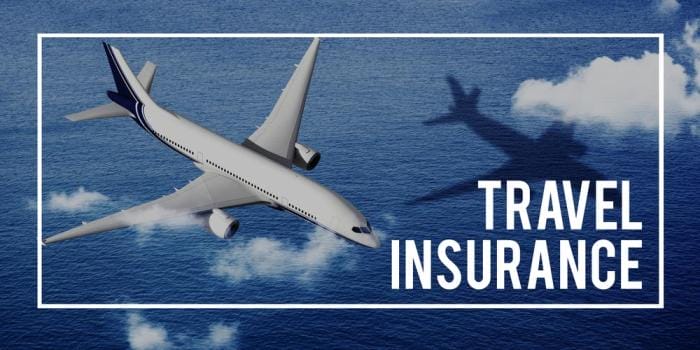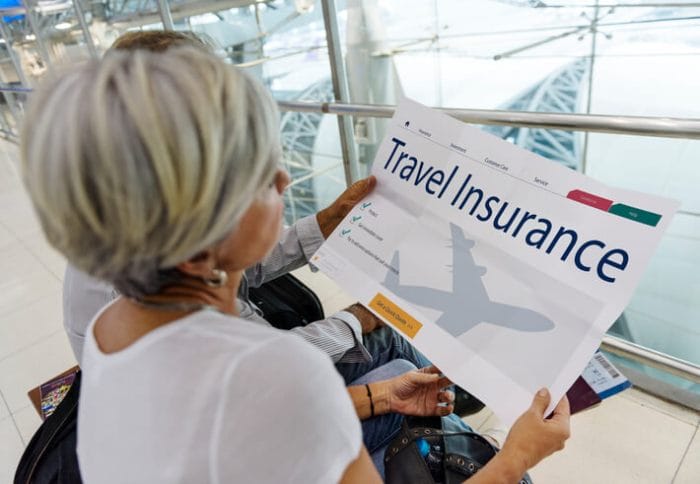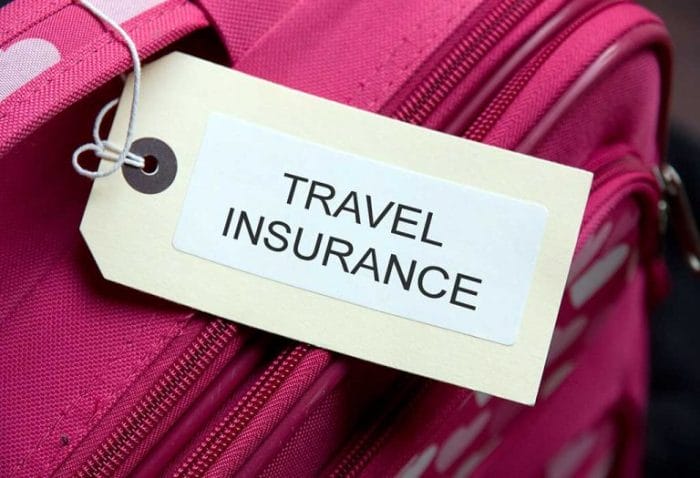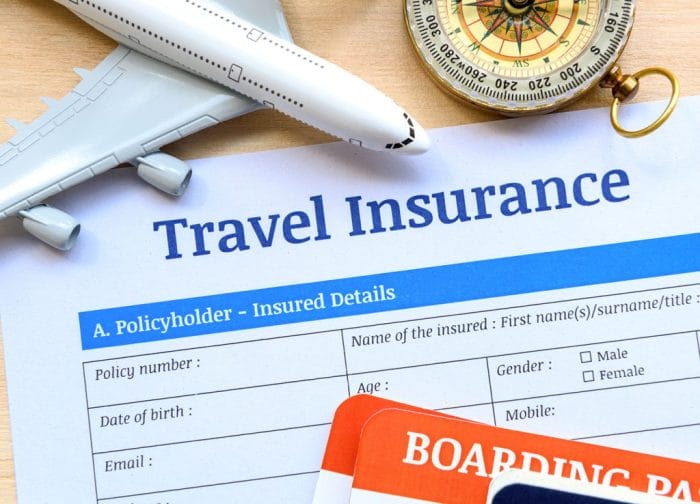In the realm of travel, unforeseen circumstances can arise, turning a dream vacation into a stressful experience. Travel insurance serves as a safety net, providing peace of mind and financial protection against unexpected events. However, navigating the reimbursement process can be daunting.
This comprehensive guide offers expert tips and strategies to help you maximize your travel insurance reimbursement, ensuring a smooth and hassle-free experience.
From choosing the right insurance plan to filing a successful claim, we’ll cover everything you need to know. Whether you’re a seasoned traveler or embarking on your first adventure, this guide will equip you with the knowledge and confidence to navigate the reimbursement process like a pro.
Getting Started

Getting travel insurance can provide peace of mind and financial protection while you’re away from home. To make the most of your travel insurance, it’s important to understand the terms and conditions of the policy and take the necessary steps before purchasing it.
Research and Compare Policies
Before purchasing travel insurance, research and compare different policies from multiple providers. Consider factors such as coverage limits, deductibles, exclusions, and the reputation of the insurance company. Read reviews and ratings from other travelers to get a sense of the quality of service and claims handling.
Understand the Terms and Conditions
Once you’ve chosen a travel insurance policy, carefully read and understand the terms and conditions. Pay attention to the coverage limits, exclusions, and any special conditions that may apply. Make sure you understand what is and is not covered by the policy, as well as any limitations or restrictions.
Purchase the Policy Early
Purchase your travel insurance policy as early as possible, ideally at the same time you book your trip. This will ensure that you’re covered from the moment you start your journey and will give you peace of mind knowing that you’re protected in case of unexpected events.
Choosing the Right Travel Insurance

Choosing the right travel insurance plan is essential to ensure you have adequate coverage for your specific needs and circumstances. Consider the following factors when comparing different travel insurance plans:
Destination and Activities
Your destination and planned activities significantly impact the type of travel insurance you need. If you’re traveling to a high-risk destination or planning adventurous activities like skiing or scuba diving, you’ll need a plan that provides comprehensive coverage for these specific risks.
Personal Circumstances
Consider your personal circumstances when choosing a travel insurance plan. If you have pre-existing medical conditions, you’ll need a plan that covers these conditions. Additionally, if you’re traveling with valuable belongings, you’ll want to ensure your plan includes coverage for lost or stolen items.
Trip Duration and Cost
The duration and cost of your trip also play a role in choosing the right travel insurance plan. Longer trips typically require more comprehensive coverage, and the cost of your trip will determine the amount of coverage you need.
Compare Plans and Coverage
Compare different travel insurance plans carefully to ensure you’re getting the best coverage for your needs. Look for plans that offer comprehensive coverage, competitive rates, and a user-friendly claims process.
Read the Fine Print
Before purchasing a travel insurance plan, carefully read the fine print to understand the terms and conditions of the policy. Pay attention to exclusions, limitations, and any other restrictions that may apply.
Filing a Claim
Filing a claim with travel insurance can seem daunting, but following the right steps can make the process smooth and successful. Let’s explore how to file a claim and the essential information required.
Required Documentation
When filing a claim, it’s crucial to have the necessary documentation to support your request. This typically includes:
- A completed claim form provided by your travel insurance company.
- A copy of your travel insurance policy.
- Receipts and documentation of expenses incurred due to the covered event, such as medical bills, transportation costs, or hotel accommodations.
- A police report or other official documentation if the claim involves theft, loss, or damage to property.
- Medical records or doctor’s notes if the claim involves medical expenses.
- Flight itineraries, boarding passes, or other travel documents.
Filing the Claim
1. Contact Your Insurance Company
Reach out to your travel insurance company’s customer service department as soon as possible after the covered event occurs. They will guide you through the claim filing process and provide you with the necessary forms and instructions.
2. Complete the Claim Form
Carefully fill out the claim form provided by your insurance company. Provide accurate and detailed information about the incident, including the date, time, and location of the event, as well as the circumstances surrounding it.
3. Gather Supporting Documentation
Collect and organize all relevant documentation to support your claim. Make copies of receipts, medical records, travel documents, and any other relevant paperwork.
4. Submit the Claim
Once you have completed the claim form and gathered the necessary documentation, submit your claim to your insurance company. This can be done online, by mail, or in person, depending on the company’s policy.
5. Follow Up
After submitting your claim, keep track of its status and follow up with your insurance company if you have any questions or concerns. Be prepared to provide additional information or documentation if requested.
Common Mistakes to Avoid
1. Delaying the Claim
Don’t delay filing your claim. Promptly reporting the incident and submitting the claim increases the chances of a successful resolution.
2. Incomplete or Inaccurate Information
Ensure that you provide accurate and complete information on the claim form and supporting documentation. Incomplete or inaccurate information can delay or even deny your claim.
3. Missing Documentation
Gather all necessary documentation to support your claim before submitting it. Missing documentation can lead to delays or denial of your claim.
4. Not Understanding Your Policy
Familiarize yourself with the terms and conditions of your travel insurance policy. This will help you understand the coverage you have and the process for filing a claim.
5. Not Following the Claim Filing Process
Follow the claim filing process Artikeld by your insurance company. Each company may have different procedures, so it’s important to adhere to their specific requirements.
Common Reasons for Reimbursement

Travel insurance provides a safety net for unexpected events that can disrupt your trip and result in financial losses. Knowing the common reasons for seeking reimbursement from travel insurance can help you understand the coverage and ensure you have the necessary documentation to support your claim.
Travel insurance policies typically cover a range of scenarios and expenses, including:
Medical Expenses
- Emergency medical treatment: If you become ill or injured during your trip, travel insurance can reimburse you for medical expenses such as hospital stays, doctor’s visits, and prescription medications.
- Medical evacuation: In case of a severe illness or injury that requires specialized care, travel insurance can cover the cost of transporting you to a medical facility with the appropriate expertise.
- Emergency dental care: Travel insurance can provide coverage for unexpected dental issues that arise during your trip, such as a toothache or a broken filling.
Trip Cancellation or Interruption
- Non-refundable trip expenses: If you have to cancel your trip for a covered reason, such as illness, injury, or natural disaster, travel insurance can reimburse you for non-refundable expenses like airfare, hotel reservations, and tour bookings.
- Trip interruption: If you have to cut your trip short due to a covered reason, travel insurance can cover the cost of unused travel arrangements, such as hotel stays and transportation.
- Missed connections: If you miss a connecting flight or other transportation due to a covered reason, travel insurance can reimburse you for the cost of getting to your destination.
Baggage and Personal Belongings
- Lost, stolen, or damaged luggage: If your luggage is lost, stolen, or damaged during your trip, travel insurance can reimburse you for the value of your belongings, up to the policy limits.
- Delayed baggage: If your luggage is delayed, travel insurance can provide coverage for essential items you need to purchase while waiting for your luggage to arrive.
Other Covered Expenses
- Emergency assistance: Travel insurance can provide access to emergency assistance services, such as translation services, legal assistance, and help with lost or stolen documents.
- Trip delay: If your trip is delayed due to a covered reason, travel insurance can reimburse you for additional expenses incurred, such as meals and accommodation.
- Rental car damage: If you rent a car during your trip and it is damaged or stolen, travel insurance can cover the cost of repairs or replacement.
It is crucial to keep receipts and documentation for all covered expenses to support your reimbursement claim. Travel insurance companies may require proof of purchase, medical records, or other documentation to process your claim.
Dealing with Claim Denials
Even with comprehensive travel insurance, claim denials can occur. Understanding the reasons behind these denials and knowing how to appeal them can significantly increase your chances of reimbursement.
Reasons for claim denials vary, but common ones include:
- Policy Exclusions: Certain events or activities may be explicitly excluded from coverage in your policy. Carefully review your policy to ensure your claim falls within the covered events.
- Incomplete or Inaccurate Information: Providing incorrect or incomplete information during the claim filing process can lead to denial. Ensure all details are accurate and complete.
- Pre-Existing Conditions: If you have a pre-existing medical condition, it may not be covered under your travel insurance policy. Review your policy’s terms and conditions for specific exclusions.
- Lack of Documentation: Supporting documentation, such as receipts, medical records, and police reports, is crucial for substantiating your claim. Gather all relevant documentation before filing your claim.
Appealing a Denied Claim
If your claim is denied, don’t lose hope. You can appeal the decision by following these steps:
- Review the Denial Letter: Carefully read the denial letter to understand the specific reasons for the denial. This will help you address these issues in your appeal.
- Gather Additional Documentation: If you have additional documentation that supports your claim, such as medical records or receipts, submit them with your appeal.
- Write an Appeal Letter: Draft a formal appeal letter explaining why you believe the claim should be approved. Address each reason for denial and provide any new information or documentation.
- Submit Your Appeal: Follow the instructions provided in the denial letter to submit your appeal. This may involve sending your appeal letter and supporting documents via mail, email, or online.
Importance of Persistence and Following the Appeals Process
Appealing a denied claim can be a lengthy and challenging process, but persistence is key. Follow the appeals process Artikeld by your insurance company and provide any additional information or documentation requested. If your appeal is denied again, you may consider contacting your state insurance department or seeking legal advice.
Travel Insurance Exclusions

Before purchasing travel insurance, carefully review the policy’s exclusions to ensure you understand what is and is not covered. Common exclusions in travel insurance policies include:
Medical Conditions
- Pre-existing medical conditions: Travel insurance policies typically exclude coverage for medical expenses related to pre-existing medical conditions.
- Mental health conditions: Mental health conditions, such as depression or anxiety, are often excluded from coverage.
- Elective surgeries: Elective surgeries, such as cosmetic surgery, are typically not covered.
Dangerous Activities
- Extreme sports: Travel insurance policies may exclude coverage for injuries sustained while participating in extreme sports, such as skydiving or bungee jumping.
- Illegal activities: Travel insurance policies do not cover expenses related to illegal activities, such as drug use or drunk driving.
- War and terrorism: Travel insurance policies typically exclude coverage for injuries or losses sustained in war zones or areas affected by terrorism.
Trip Interruptions
- Natural disasters: Travel insurance policies may exclude coverage for trip interruptions caused by natural disasters, such as hurricanes or earthquakes.
- Mechanical breakdowns: Travel insurance policies may exclude coverage for trip interruptions caused by mechanical breakdowns of vehicles or aircraft.
- Missed connections: Travel insurance policies may exclude coverage for missed connections due to factors such as traffic delays or flight cancellations.
Lost or Stolen Items
- Cash and valuables: Travel insurance policies typically exclude coverage for lost or stolen cash and valuables, such as jewelry or electronics.
- Checked baggage: Travel insurance policies may exclude coverage for checked baggage that is lost or stolen.
- Rental cars: Travel insurance policies may exclude coverage for damage to rental cars.
It is important to carefully review the policy’s exclusions before purchasing travel insurance to ensure you understand what is and is not covered. If you have any questions about the exclusions, contact your insurance company for clarification.
Avoiding Common Pitfalls
Successfully navigating the travel insurance reimbursement process requires careful attention to detail and adherence to the insurance company’s guidelines. Avoiding common pitfalls can prevent delays, denials, and complications during the reimbursement process.
Filing Timely Claims
One of the most critical aspects of seeking reimbursement is filing your claim promptly. Insurance companies often have strict deadlines for filing claims, and failure to meet these deadlines can result in a denied claim. Additionally, filing your claim promptly ensures that you have all the necessary documentation and evidence to support your claim while the details are still fresh in your memory.
Following Insurance Company Guidelines
Each travel insurance company has its own specific guidelines and procedures for filing a claim. It is crucial to carefully read and follow these guidelines to ensure that your claim is submitted correctly and contains all the required information. Failure to do so may result in delays or even denial of your claim.
Providing Complete and Accurate Documentation
When filing a claim, you must provide complete and accurate documentation to support your claim. This includes receipts, invoices, and other relevant documentation that verifies your expenses and the reason for your claim. Incomplete or inaccurate documentation can lead to delays or denial of your claim.
Communicating Effectively with the Insurance Company
Effective communication with the insurance company is essential throughout the reimbursement process. If you have any questions or concerns, do not hesitate to contact the insurance company’s customer service department. Clearly explaining your situation and providing any additional information or documentation requested can help expedite the reimbursement process.
Maximizing Reimbursement

Recovering the most from travel insurance claims involves strategic planning and documentation. Learn how to maximize your reimbursement.
Documenting Expenses Effectively
Meticulously record all expenses related to your claim. Maintain receipts, invoices, and any documentation proving costs incurred. This includes receipts for transportation, accommodation, medical bills, and other expenses covered by your policy.
Preserving Clear and Organized Records
Maintain a well-organized system for storing your travel-related documents. This includes flight tickets, boarding passes, hotel bills, car rental agreements, and other relevant paperwork. Consider using a digital filing system or cloud storage to keep these records easily accessible.
Additional Tips and Resources

Travel insurance can be a valuable resource for travelers, but it’s essential to understand the process of getting reimbursed. Here are some additional tips and resources to help you get the most out of your travel insurance policy:
Research and Choose the Right Policy
Before you purchase a travel insurance policy, carefully read the terms and conditions to understand what is and isn’t covered. Consider your specific travel needs and choose a policy that provides the coverage you need.
Keep Detailed Records
When you file a claim, you’ll need to provide documentation to support your claim. This can include receipts, invoices, and other documents that show the expenses you incurred. Keep these records organized and easily accessible.
File Your Claim Promptly
Most travel insurance policies have a time limit for filing a claim. Be sure to file your claim as soon as possible after your trip. This will give the insurance company time to process your claim and issue payment.
Work with a Travel Insurance Broker or Agent
If you’re unsure about which travel insurance policy is right for you or have questions about filing a claim, consider working with a travel insurance broker or agent. These professionals can help you choose the right policy and guide you through the claims process.
Helpful Websites and Resources
- U.S. Department of State’s Travel Insurance Information: https://travel.state.gov/content/travel/en/international-travel/before-you-go/travel-insurance.html
- Insurance Information Institute’s Travel Insurance Guide: https://www.iii.org/article/travel-insurance-guide
- Forbes’ Best Travel Insurance Companies: https://www.forbes.com/advisor/travel-insurance/best-travel-insurance-companies/
Case Studies

Sharing case studies or real-life examples of successful reimbursement claims can be incredibly valuable in understanding the challenges faced and strategies used to achieve reimbursement. These examples highlight the importance of persistence and attention to detail when filing a claim.
Real-Life Case
A family’s vacation to Europe was interrupted when their flight was canceled due to a severe storm. They were stranded in a foreign country with additional expenses for food, lodging, and transportation. Their travel insurance provider reimbursed them for these unexpected costs after they submitted a detailed claim with receipts and documentation.
Importance of Documentation
One key factor in successful reimbursement is providing thorough documentation to support the claim. This includes receipts for all expenses, as well as a detailed explanation of the circumstances surrounding the claim.
Importance of Communication
Another important factor is effective communication with the travel insurance provider. This includes promptly reporting the claim and providing regular updates on the status of the claim.
Closing Summary

Remember, travel insurance is an investment in your peace of mind and financial security. By following the expert tips Artikeld in this guide, you can increase your chances of a successful reimbursement and minimize the stress associated with unexpected travel disruptions.
So, pack your bags, embrace the unknown, and travel confidently, knowing that you’re protected by a comprehensive travel insurance policy and the knowledge to maximize your reimbursement.
FAQ Summary
Q: What are some common reasons for reimbursement from travel insurance?
A: Common reasons include trip cancellation or interruption, medical emergencies, lost or damaged baggage, and flight delays or cancellations.
Q: What documentation is typically required for a successful reimbursement claim?
A: Generally, you’ll need copies of your travel insurance policy, receipts for covered expenses, a claim form, and any supporting documentation related to the incident.
Q: What are some common mistakes to avoid when filing a travel insurance claim?
A: Common pitfalls include not filing the claim promptly, failing to provide sufficient documentation, and not understanding the terms and conditions of your policy.
Q: How can I maximize my reimbursement from travel insurance?
A: Strategies include keeping clear and organized records, documenting expenses effectively, and understanding the coverage limits and exclusions of your policy.
Q: What are some additional tips for getting reimbursed with travel insurance?
A: Consider working with a travel insurance broker or agent, utilize online resources and guides, and be persistent and follow the appeals process if your claim is initially denied.



